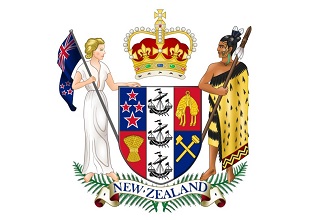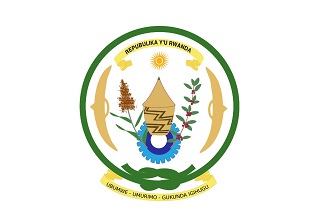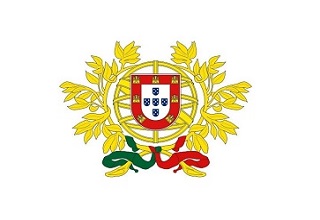Regarding the Inspection and Quarantine Requirements for the Podocarpus Plants from Thailand
1. Basis for inspection and quarantine
(1) The Biosafety Law of the People's Republic of China;
(2) The Entry-Exit Animal and Plant Quarantine Law of the People's Republic of China and the Regulations for its implementation;
(3) Measures for Quarantine Administration of Imported Plant Propagating Materials;
(4) Protocol between the General Administration of Customs of the People's Republic of China and the Ministry of Agriculture and Cooperatives of the Kingdom of Thailand on Plant Quarantine Requirements for Thai Podocarpus plants exported to China.
2. Names of goods allowed to enter the country
In this notice refers to Podocarpus plant that are raised and cultivated in Thailand and exported to China for ornamental purposes.
3. Registration
The Ministry of Agriculture and Cooperatives of the Kingdom of Thailand (hereinafter referred to as the Thailand) shall carry out assessment on the cultivated nurseries of podocarpine exported to China and recommend nurseries meeting the requirements to the General Administration of Customs of the People's Republic of China (hereinafter referred to as the China). The China will review the nurseries recommended by the Thailand, conduct on-site inspections if necessary, and register them after they are approved. The China will publish the list of registered nurseries on the official website.
4. List of pests of concern
Thai podocarpus imported into China shall not carry the following harmful organisms:
(1) quarantine harmful organisms.
a. Meloidogyne spp. (non-Chinese species)
b. Trichodorus spp.(The species transmit viruses)
c. Xiphinema spp.(The species transmit viruses)
d. Pratylenchus spp.(non-Chinese species)
e. Radopholus similis
f. Ditylenchus angustus
(2) Defined non-quarantine harmful organisms.
a. Scirtothrips dorsalis
b. Euwallacea destruens
5. Pre-export management
5.1 Planting management.
a. Podocarpus plants shall be transplanted to a registered nursery one year before export. Before entering the nursery for planting, the root soil should be completely removed by means of root washing, and planted in a culture medium that has been quarantined and disinfected, without harmful organisms and has not been used.
b. Podocarpus plants should be planted off the ground, with a platform height of no less than 50 cm, or placed on the concrete floor, and the roots of the plants should be wrapped with plastic buckets (films) or other materials approved by the China.
5.2 Nursery management.
a. The Thailand shall supervise the establishment of a comprehensive pest control system in the nurseries, do a good job in plant epidemic prevention and control, and avoid the occurrence of pests of concern to China.
b. The Thailand shall carry out routine inspection of the nursery not less than twice a year, and the nursery shall carry out monitoring once a month under the supervision of the Thailand to confirm the occurrence of harmful organisms and their harmful symptoms. Plants showing symptoms must be sampled and sent to a Thai approved laboratory for quarantine identification. If a pest of concern to the Chinese is found, infected podocarpus plants must be removed or destroyed.
c. No podocarpus and podocarpus plants are allowed within 1 km of the nursery. Adequate spacing must be maintained between each tree in the nursery. People, tools and equipment entering the nursery must be properly cleaned and disinfected. Any diseased and irrelevant plant material, including weeds, fallen leaves, broken or dead branches, must be promptly removed from the nursery and disposed of harmlessly.
All inspection, monitoring and planting management records shall be kept for at least 3 years and shall be provided promptly upon request by the China.
5.3 Packaging and transportation management.
a. The packing area and the storage area of the cultivation media for Chinese podocarpus chinensis shall be free of sand, soil, weeds and plant pests, clean and sanitary, and separated from and protected from the plant materials destined for other trade markets. Plant root media should also be treated with a mixture of nematocides, fungicides and insecticides before export.
b. Podocarpus plants exported to China should be transported in containers, and corresponding measures should be taken to prevent the spread of the epidemic. If the use of open top or frame container transportation, should also be capped on the top of the aperture of no more than 1.6mm insect-proof net.
5.4 Product requirements.
Podocarpus plants imported into China shall comply with the requirements of China's entry plant quarantine laws and regulations and national standards, and shall not carry soil, harmful organisms of concern to China and other entry plant quarantine harmful organisms.
5.5 Pre-export quarantine.
a. Before export, Thailand must carry out quarantine inspection on imported Podocarpus plants, focusing on soil, harmful organisms and their symptoms of harm and other special conditions. If found, the situation should be sent to the laboratory for identification. Once the live harmful organisms of concern to China are detected, the lot of Podocarpus and Podocarpus in the same nursery shall not be exported to China. If other live pests are detected, they can be re-inspected after treatment and allowed to be exported to China after passing the test.
b. If two batches of Podocarpa pine are detected within one year in the same Podocarpa pine nursery exported to China, the qualification of the nursery exported to China shall be suspended until effective rectification measures are taken. If there are more than two shipments within a year, the Thailand shall cancel its license to export to China and notify the China in a timely manner.
c. Podocarpus plants that pass the pre-export quarantine shall be affixed with a qualified label, which must include the unique number of the plant, the nursery name and registration number, and the date of transfer to the nursery.
5.6 Requirements for plant quarantine certificates.
If it passes the quarantine, the Thailand shall issue a phytosanitary certificate in accordance with the International Standard for Phytosanitary Measures No. 12 "Guidelines for Phytosanitary Certificates". And in The additional statement noted "The consignment is in compliance with requirements described in the Protocol of Phytosanitary Requirements for the Export of Podocarpus Plants from Thailand to China and free from soil and the pests of concerned to China , and indicate the nursery registration number and the corresponding qualification number of each Podocarpus, such as quarantine treatment before export, should also indicate the treatment method, drug name, concentration, treatment time and other contents in the certificate.
6. Entry inspection and quarantine
6.1 quarantine examination and approval.
a. The importer shall apply for and obtain the quarantine approval form in advance;
b. Podocarpus plants shall enter China at designated ports.
6.2 Certificate and label verification.
a. Check whether there is a quarantine approval form;
b. Check whether it is from a registered nursery;
c. To check whether the attached phytosanitary certificate issued by the Thailand is true and valid;
d. Check whether the label on the Podocarpa pine plant complies with the provisions of Article 5 (5) Item 3 of this announcement.
6.3 Goods inspection
In accordance with relevant laws, administrative regulations, rules and other provisions, the import of podocarpus plants shall be quarantined, and those that pass the quarantine shall be allowed to enter the country and be transported to the designated nursery required by the quarantine examination and approval sheet for supervision.
6.4 Handling of nonconformity.
a. If there is no valid phytosanitary certificate or quarantine approval form, it shall be returned or destroyed;
b. Returned or destroyed from unregistered nurseries or without qualified labels;
c. If the number of the qualified label is inconsistent with the content of the attached phytosanitary certificate, the corresponding plant shall be returned or destroyed;
d. If soil is found, it shall be returned or destroyed;
e. Live insects, pests in Article 4 of this Announcement or in the List of Imported Phytosanitary Pests of the People's Republic of China shall be allowed to enter the country after being qualified by effective control treatment. If there is no effective control treatment method, they shall be returned or destroyed;
The China will inform the Thailand of the above non-conformity, and as the case may be, suspend the export of podocarpus plants to China from the relevant enterprises, nurseries or producing areas until the China confirms that the problem has been effectively rectified.
GACC
Mar. 1, 2024




